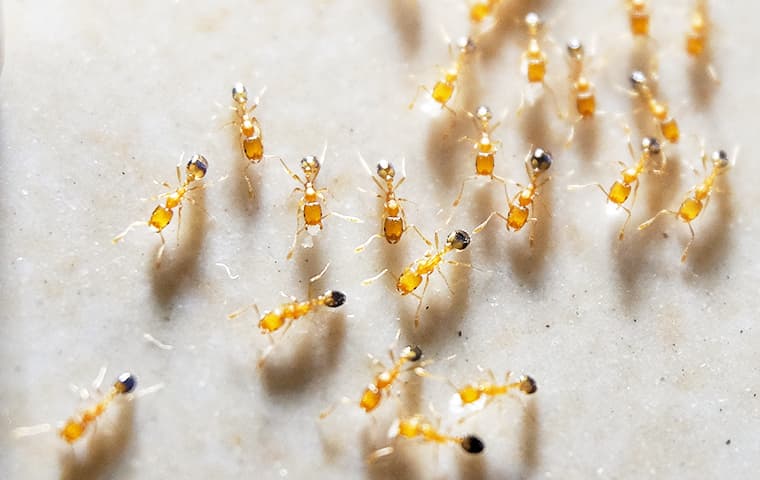Springtime in the Midwest brings warmer temperatures and blooming flowers, but it also signals the resurgence of ant activity. Among the many ant species that can invade homes, odorous house ants are particularly prevalent during this season. Homeowners often find themselves facing the unwelcome challenge of dealing with these persistent pests. Understanding why odorous house ants thrive in spring and how to effectively control them is crucial for maintaining a pest-free home.
Odorous house ants are small, typically dark brown or black, and get their name from the unpleasant odor they emit when crushed. This smell, often compared to rotten coconuts, is a key identifying characteristic. Like all ants, they have three distinct body segments, six legs, and antennae. However, several of their behaviors and preferences contribute to their increased presence in homes during the spring.
Springtime Behavior and Increased Activity
As the weather warms, ant colonies become more active. Overwintering ants emerge, and the colony’s focus shifts to reproduction and foraging for food to support new growth. Odorous house ants are particularly drawn to moisture and sweet substances, which are readily available in many homes. Spring rains can also drive ants indoors as they seek drier ground.
Why Odorous House Ants Are So Common in Spring
Several factors contribute to the prevalence of odorous house ants in spring:
- Increased Foraging: With the colony’s need for food, more worker ants venture out to find sources, increasing the chances of encountering them in homes.
- Moisture Attraction: Spring often brings increased rainfall and humidity, creating the moist conditions that odorous house ants prefer.
- Food Availability: As people increase outdoor activities and leave behind food debris, ants find ample food sources near homes.
- Nest Relocation: Spring rains can flood existing nests, forcing ants to seek new, drier locations, which may be inside homes.
The Problems Caused by Odorous House Ants
While odorous house ants are not known to cause structural damage like carpenter ants, they can still be a significant nuisance. They can contaminate food, spread bacteria, and create an unpleasant odor when crushed in large numbers. Their persistent presence can be frustrating and disruptive to daily life.
Effective Ant Control Strategies
Controlling odorous house ants requires a comprehensive approach that addresses both the ants you see and the colony as a whole.
- Eliminate Food Sources: Store food properly, clean up spills promptly, and keep garbage cans sealed.
- Seal Entry Points: Seal cracks and gaps in walls, windows, and foundations to prevent ants from entering.
- Reduce Moisture: Repair leaks and ensure proper ventilation to minimize moisture in and around your home.
- Follow Ant Trails: Observe ant trails to identify potential food sources and nesting areas.
- Use Baits: Ant baits can be effective as worker ants carry the poison back to the colony, eliminating the source.
- Contact Professionals: For severe or persistent infestations, professional pest control services are recommended.
The Importance of Professional Pest Control
While some DIY methods can provide temporary relief, professional pest control services offer the most effective and long-term solution for ant infestations. Serving Forsyth, IL, Decatur, IL, Clinton, IA, La Valle, WI, Springfield, IL, Sycamore, IL, Barrington, IL, Delavan, WI, and the surrounding areas, Pest Control Consultants is here to help you identify ant species, locate nests, and apply targeted treatments to eliminate the entire colony. They also provide valuable advice on preventing future infestations.
Conclusion
Odorous house ants are a common spring nuisance, but with the right approach, they can be effectively controlled. By understanding their behavior and implementing preventative measures, homeowners can minimize the risk of infestation. For persistent ant problems, professional pest control is the best solution.
Don’t let ants take over your home this spring. Contact Pest Control Consultants (PCC) today for reliable ant control solutions and expert advice. We are here to meet your pest control needs and provide effective treatments to keep your home ant-free.
Get help now